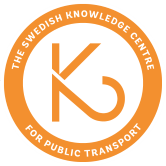The concept of motility, mobility capital, has been put forward to understand mobility from a more holistic perspective through incorporating subjective and objective as well as material and non-material aspects in the examination of individuals' mobility potentials. In this paper, building on a survey study in the two municipalities of Malmö and Gothenburg in Sweden, I developed a quantitative operationalization of motility in relation to cycling and employed GIS-based and statistical analyses to identify a set of appropriate indicators to measure the three dimensions of cycling motility namely access, competence, and appropriation. The analyses reveal three operational dimensions underlying the process of appropriating cycling to carry out daily trips. More specifically, individuals' perceptions of the functional and social suitability of cycling and its compatibility with their principles and values seem to be significant for the appropriation of a bike as a daily travel mode. Altogether, the findings support that the quantitative operationalization of cycling motility can deepen our understanding of the factors shaping individuals' cycling potentials and practices, hence offering valuable insights into the development of successful cycling interventions that create material and nonmaterial infrastructure, competences, and positive representations necessary for the appropriation of cycling.
